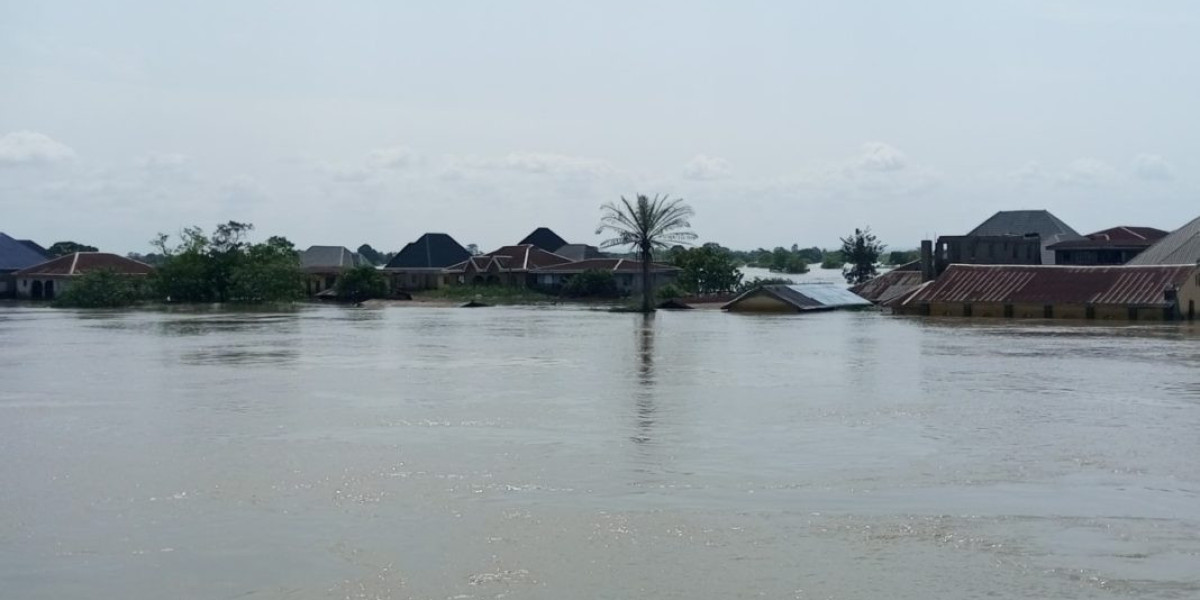Eziagulu Aguleri, a lovely little community nestled within Anambra West Local Government Area of Nigeria, grapples with a recurring nightmare floods.
Year after year, as though responding to a cruel summons, floodwaters rise, engulfing homes, farms, and lives in a relentless surge.
This essay explores the devastating impact of these floods on Eziagulu Aguleri, examining the social, economic, and psychological toll they inflict.

The floods typically arrive with the predictability of a scorned lover. September seems to be their chosen month, marking the descent into a watery chaos.
News reports from 2019 paint a vivid picture submerged houses, buildings turned into islands, and farmlands transformed into vast, unwelcome lakes [Vanguard News]. Schools are forced to shut down, their classrooms no longer sanctuaries of learning, but potential victims of the encroaching water. The very foundation of daily life crumbles as markets become inoperable, their shelves stripped bare by the rising torrents.

The human cost of these floods is immeasurable. Residents are displaced, forced to flee their homes and seek refuge on higher ground, often with relatives or in overcrowded emergency shelters. The image of people sleeping on bridges, their vulnerability exposed under the harsh glare of the elements, is a stark reminder of the devastation wrought [Daily Trust]. The floodwaters not only steal physical possessions, but also erode a sense of security and stability.

The economic impact is equally severe. Livelihoods are washed away, quite literally. Farms, the source of income for many, are rendered useless, their crops destroyed by the flood's fury. Shops and businesses are submerged, their inventories ruined. The financial hardship caused by these events ripples through the community, leaving a trail of debt and despair.
Beyond the immediate economic and social disruption, the floods inflict a deep psychological wound. The fear of the impending deluge hangs heavy in the air, a constant companion throughout the year. Residents become prisoners of a cycle rebuilding after the water recedes, only to face the threat of it all being swept away again. This constant state of uncertainty and vulnerability takes a toll on mental well-being, breeding a sense of helplessness and hopelessness.
Eziagulu Aguleri's story is not unique. Many communities around the world grapple with the devastating effects of climate change, of which flooding is a potent symptom. However, the story also serves as a call to action. Mitigation strategies, such as improved drainage systems and the exploration of floodplains, are crucial. Additionally, early warning systems and evacuation plans can help minimize the human cost of these disasters.
The fight against flooding requires a multi-pronged approach. Government agencies, NGOs, and the community itself must work together to develop sustainable solutions. Investment in infrastructure, coupled with public education and preparedness measures, can offer a glimmer of hope in the face of this annual ordeal.
Eziagulu Aguleri's story is not just one of despair; it's also a testament to the resilience of its people. Year after year, they rebuild their lives, their spirits unbroken. But the fight against the floods cannot be theirs alone. It's a collective responsibility, a call to action for a future where the rising waters no longer dictate the rhythm of their lives. Only then can Eziagulu Aguleri, and communities like it, find respite from this annual anguish.










